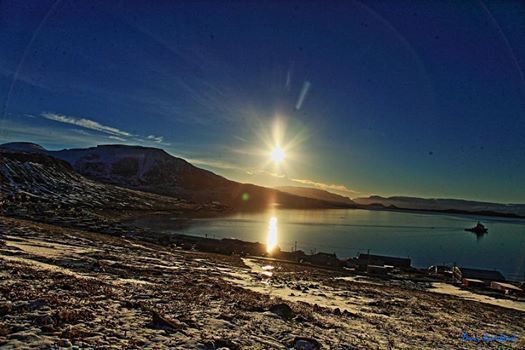
Nunavut
Is it possible that there is still a place untouched by the technology and pace of the modern world? Does the idea of living and ministering in such a place fill your heart with faith-filled excitement? In Nunavut, Canada, such a place exists. Nunavut is the northernmost part of Canada which is divided into three regions: Qikiqtaaluk, Kivalliq, and Kitikmeot. Though fairly uninhabited, the population is approximately 36,000, and the land spans a little over 805,000 square miles.

The First Nations population in Nunavut are known as the Inuit people. They have a rich history of foreign visitors, including Norse Vikings, European explorers, and Americans, though the majority of the population is First Nationers. Originally, Nunavut was a part of the Northwest Territories, but it became its territory for the Inuit people officially in 1999. Though the Inuit are the primary people group in the area, they have four distinct languages spoken in the region.
Similar to Yukon, Northwest Territories, and Alaskan villages, Nunavut culture is centralized on respect: respect for elders, culture, and the land. Even with the recent tourism development in the area, most of Nunavut remains true to its history, living almost entirely subsistence-reliant lifestyles with minimal modern technology. They maintain a hunting and gathering food supply and work hard to preserve their heritage for future generations.
Because of the location of Nunavut, they experience the most significant variance in their seasonal exposure to the sun. Grise Fiord, on Ellesmere Island, has 24 hours of sun from mid-April to late August! However, in the winter, Grise Fiord does not see the sun from the start of November to mid-February. This is just one example of how extreme the climate can be in this rural land.
Often, the ground is too frozen for too much of the year that their community piping must operate above ground in the most rural locations. In fact, the community above, Grise Fiord, is nicknamed “the land that never thaws.” Further, there are no highways in Nunavut, and rarely any roads that connect one community to another. Within many of the communities, the English alphabet we are familiar with is used, but so is a syllabic system brought to the native people from Christian missionaries.
Nunavut is a cultural haven for history and heritage. At SEND North, we are seeking to spread the Gospel to this area. We have team members in the Northwest Territories and the Yukon, but none in Nunavut at this time. We hope that we will not only find the right opportunities to enter the region, but also the right people to work through us in the area. If life in one of the world’s most beautiful, untouched, and extreme places interests you, click here for ways you can be involved!
Additional Posts




